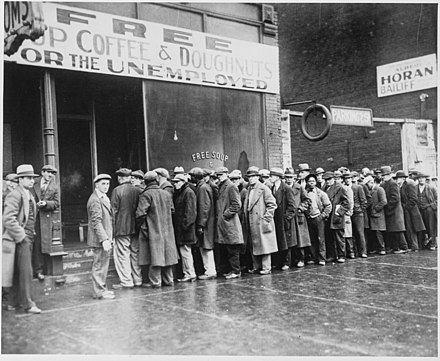
Courtesy of wikipedia.com
The bookstore owner who hosted my summer writers’ workshops closed her doors last December. The rent had ballooned too high, but she hoped to find another location. Then the pandemic hit in February 2020. Looking back, the woman might have felt she’d had a close call. Unlike others in her trade, she wasn’t falling behind her rent while waiting for the disease to pass.
Even so, she wanted to be busy and emailed her customers to say that during the interim, she might take mail orders. That wouldn’t happen overnight, of course. She speculated she’d have to create a new web page, upload her inventory, and make arrangements for bulk mail with the post office. That could divert time and money from a new store. For the moment, the future looked murky but she’d let us know her decision once she knew it herself..
I’ll be interested to hear from her. After all, murky conditions don’t always pan out for the worst. My bookstore friend might be surprised to learn that one individual has given thought to her dilemma and that of other book store owners and has come up with a solution. Bookshop LLC isn’t trying to compete with Amazon, but it does offer an electronic platform where small stores with loyal customers can continue to do business. Already 500 independents have signed on and “received more than $833.000 in proceeds from sales…” (Bookstores’ Coronavirus Moment,” by Dana Hull, Bloomberg Businessweek, April 27, 2020, pgs. 14-15.)
Bookshop may not help all independents survive, but it can generate cash flow. Will it be enough to benefit employees as well as owners? It’s doubtful as well as a shame. Small businesses employ 48% of the workforce in this country. But when the economy gets running again, workers are likely to face new challenges. Wary of debt, owners of business small and large are going to seek ways to reduce their overhead. That means fewer jobs and fewer working hours. Or, employers might turn to automation as much as they can.
Those who find themselves without work will probably stand in the unemployment line a little longer than usual with plenty of time to worry about their lost healthcare benefits if the pandemic strikes again, as some say it will. If their benefits run dry can they look to Congress to bail them out the way it did banks in 2008? Not likely if Republicans are in power.
As murky as the future looks, there might be a bright side coming out of this pandemic. Having seen much of their wealth disappear, voters may find they have an appetite for universal healthcare. Some might even come to see that poverty has little to do with being lazy and more to do with the uneven distribution of wealth in this country. If they do, I hope they manifest that wisdom at the ballot box in November. In fact, now that we’ve seen with our own eyes the impact of human activity on the environment, we might want to do something about climate change, too.
